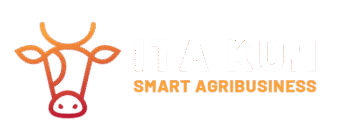Frequently Asked Questions
1- How do I log in?
First, a membership application is signed. Then, a bank transfer or electronic check is sent to the ITAKUH bank account. You will then receive proof of membership subscription.2.- What is the trust documentation?
The ITA KUH Trust has a charter (public deed), which is registered with the General Inspectorate of Justice and is available upon request. Additionally, the trust has the following documents:- CUIT: 30-718128036
- Bank account at the Banco de la Nación Argentina
- RENSPA
- Mark Ticket
3.- Can you go see the countryside and the animals?
Yes, tours can be arranged to see the condition of the animals and the fields.4.- What happens if the animals die?
All projects assume a 2% mortality rate, which is the typical percentage in the region. If mortality occurs, it is distributed proportionally among all investors, as each share represents a percentage of the total number of animals. Although this is a real risk, measures are taken to minimize it. Animals are purchased based on their individual quality and the health status of their farm of origin. In addition, a health plan is implemented that includes all recommended vaccinations. To maximize individual efficiency, efforts are made to keep the animals well-fed, which reduces the risk of disease. In the three initial rounds, mortality was 1.05%.5.- Why is it not considered a Ponzi scheme (pyramid scheme)?
First, a variable return is offered, which entails a risk associated with the purchase/sale and production of the animals. Known cases of pyramid schemes offered fixed returns, which are very difficult to achieve in open-air production systems. Furthermore, investment rounds are time-limited (cycles of less than a year). The funds are allocated to the trust and returned to the investor once the project concludes. Since there is no overlapping investment cycles, there is no possibility of a pyramid scheme.6.- Why is the investor not required to pay income tax?
The income tax is levied on the trust, not on the investors. There cannot be double taxation of the same tax. There is also a tax benefit that defers the payment of income tax, since production takes place in the province of Corrientes, which is outside the central livestock zone, in accordance with resolutions J-476/62 and J-315/68 of the former National Meat Board.7.- What happens with Gross Income?
In the province of Corrientes, primary activity (livestock farming) is not subject to gross income.8.- What legal security do I have when investing?
Trusts are regulated by the National Civil and Commercial Code (CCyC), approved by Law 26,994. This protects investors structurally and financially by ensuring that the funds are segregated, the trustee is accountable, and the trust's purposes are not diverted. However, it does not eliminate business risk, nor does it offer "profitability insurance."9.- Can the share be redeemed before the end of the business cycle?
Ideally, this wouldn't happen, but it's contemplated that the share could be sold, provided there's someone interested in buying it. It's likely to suffer some price reduction.

1 visitas hoy
